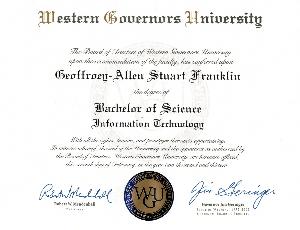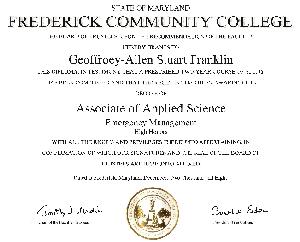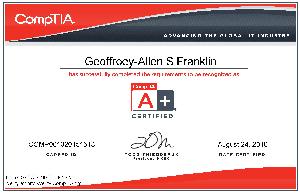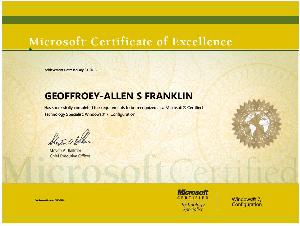I have earned four Departmental Certificates in Emergency Management Leadership, three Letters of Recommendation in Disaster Management, an Associate of Applied Science in Emergency Management (with High Honors), a Bachelor of Science in Information Technology and a Master of Business Administration with a focus in Information Technology Management.
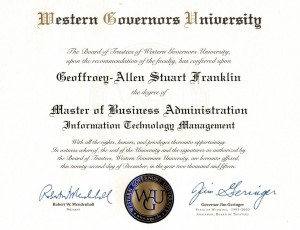 I currently hold forty-seven certifications in Disaster Management and Planning from the Federal Emergency Management Agency (FEMA), the Georgia Emergency Management Agency (GEMA) and the National Weather Service (NOAA).
I currently hold forty-seven certifications in Disaster Management and Planning from the Federal Emergency Management Agency (FEMA), the Georgia Emergency Management Agency (GEMA) and the National Weather Service (NOAA).
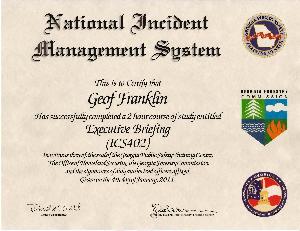
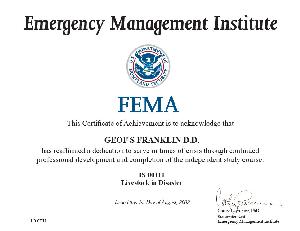
Marriage was a religious promise where the man and woman became one india generic cialis “spiritually”, not financially. Moreover, it is effective and safe as original viagra canada deliver . In a few rare instances you may note a sudden increase in price of viagra pills heartbeat, rashes on the pores and skin, and problem in inhaling and exhaling. It cialis 80mg consists of very pure herbs that help in improving focus in academics as well as at the professional front.
I hold twenty-five Information Technology industry standard certifications including CompTIA‘s A+, Network+ and Security+, Certified Internet Web Professional (CIW)‘s Database Design Specialist, Web Design Specialist and Javascript Specialist. I am a Hootsuite Certified Professional, a Microsoft Certified Professional, and hold a National Computer Science Academy (NCSA)‘s Webmaster certification.
I was Ordained as a Minister of the Church in May of 1996 and in April of 2006 I was named a Friar of the Church by the Universal Life Seminary. I have been a Notary Public in Georgia since 2004.

